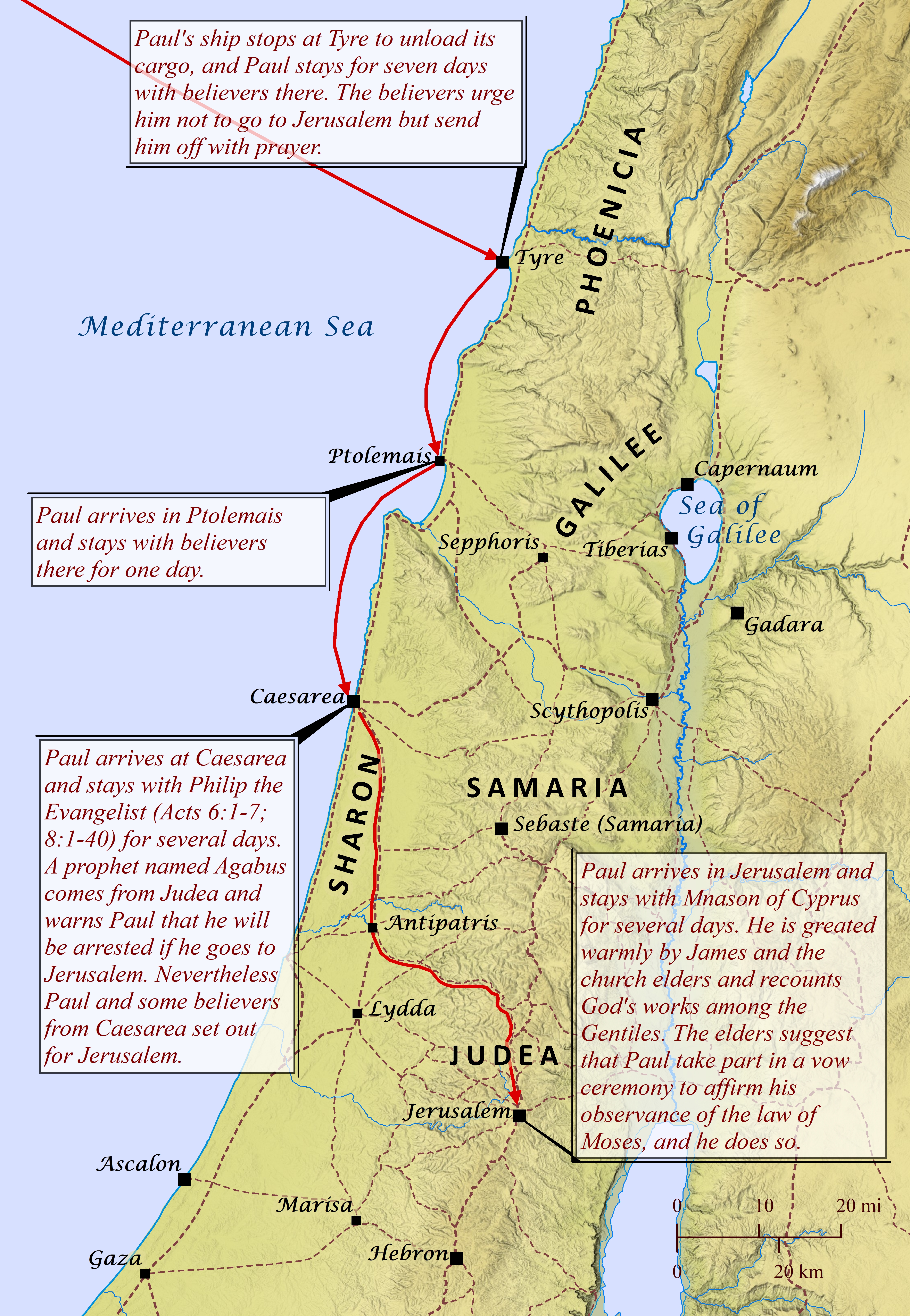Readers’ Version
Literal Version
21:37 Paul’s defence
37 As they were able to carry him into the fortress, Paul called down to the commander, “Can I say something to you?”
“You speak Greek!”, replied the commander. 38 “Aren’t you the Egyptian who stirred up a group of assassins a while back and led them out into the wilderness?”
39 “No, I’m a Jew from Tarsus in Cilica—a citizen of an important city,” said Paul. “But please, let me speak to these people.”
40 The commander nodded, so the soldiers stood Paul on the stairs where he gestured to the people. The crowd quietened down, and so Paul spoke loudly in his Hebrew language:
22 “Men, brothers, and fathers, listen to what I have to say for myself.” 2 When they heard him speaking Hebrew, they became even more quiet as he continued, 3 “I am a Jew who grew up in this very city to study under Gamaliel. I’ve been raised according to every part of our ancestral law, working hard to obey God like all of you here today. 4 I used to persecute the followers of ‘The Path’ even to death—tying up both men and women and handing them over to the prisons 5 as the Chief Priest and all the council of elders can tell you. I took letters from them to our Jewish brothers in Damascus when I went so that I could arrest the ones there and bring them back here to Yerushalem to be punished.
- is_it_permitting to_me to_say something to you?
And he was_saying:
You_are_knowing In_Hellaʸn?
38 Consequently are you not the from_Aiguptos/(Miʦrayim), who before these the days, having_upset and having_led_out the four_thousand men of_the assassins into the wilderness?
39 But the Paulos said:
On_one_hand I am a_Youdaiōns a_man, from_Tarsos, of_ the _Kilikia, a_citizen of_an_ not _insignificant city.
On_the_other_hand I_am_beseeching of_you, permit to_me to_speak to the people.
40 And of_ him _having_permitted, the Paulos having_stood on the stairs, gestured with_his hand to_the people, and great silence having_become, he_called_out in_his Hebraios language saying, 22 Men, brothers, and fathers, hear which to you_all right_now of_the_defense of_me.
2 (And having_heard that he_was_calling_out to_them in_the Hebraios language, they_brought_about more quietness.
) And he_is_saying:
3 I am a_ Youdaiōns _man, having_been_born in Tarsos of_ the _Kilikia, but having_been_brought_up in the this city, before the feet of_Gamaliaʸl/(Gamlīʼēl), having_been_instructed according_to the_exactness of_our ancestral law, being zealous the for_god, as all you_all are today, 4 who I_persecuted this the way until death, binding and giving_over to prisons, both men and women, 5 as also the chief_priest is_testifying to_me and all the council_of_elders, from whom also having_received letters to the brothers, I_was_going to Damaskos/(Dammeseq), going_to_ also _bring the ones being there, having_been_bound to Hierousalaʸm/(Yərūshālayim), in_order_that they_may_be_punished.

